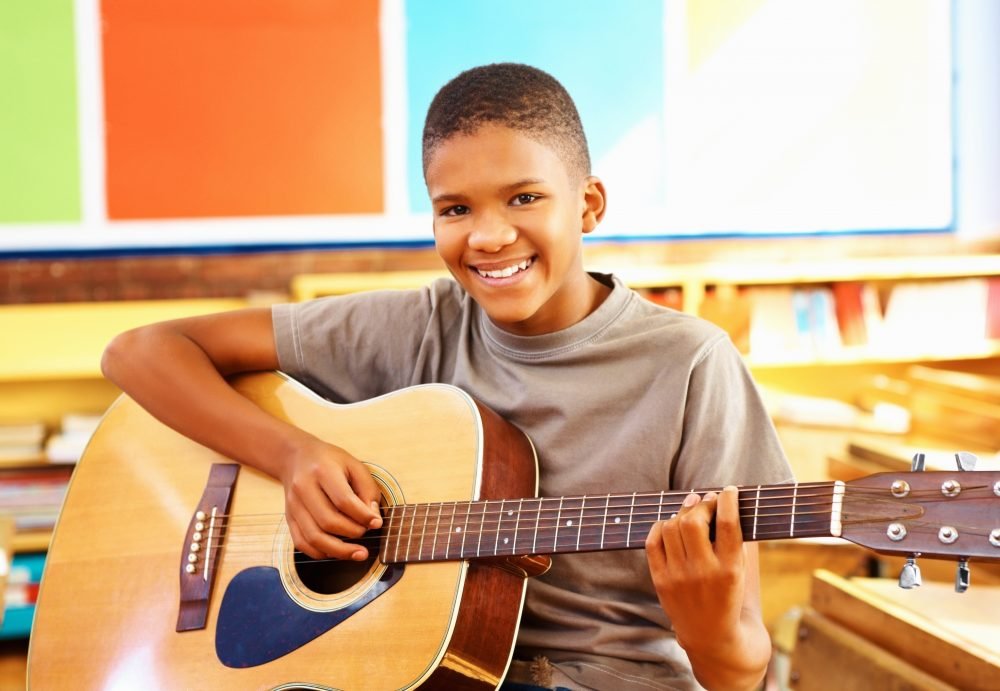As children grow and mature, they slowly but surely discover those things that excite them and figure out the activities they do not enjoy. Little kids are generally up for anything, so they will participate in just about any activity their parents sign them up for. As they get older, however, children develop more specific tastes and interests, and learn more about who they are and what special skills or passions they might possess. With this in mind, it is important that students begin to explore a wide range of extracurricular activities at an early age, so they can discover the passions and interests that will enable them to thrive inside and outside of school.
There are many ways to encourage your child to get involved in extracurriculars; you might start by asking your student what he finds appealing or what she has always wanted to try. Because kids at this age don’t always know what appeals to them, you might ask a teacher or counselor if they have observed any special or specific aptitude your child might possess and then encourage him or her in that direction. The truth is, however, that at this age, your student might not yet show a passion or talent for any one activity as they simply have not yet been exposed to all the options. With that in mind, the more you can encourage them to try a wide spectrum of activities, the better. Below are many extracurricular options and the potential benefits they might provide your child:
Arts: the arts are a great way for your child to develop and express those parts of themselves that they may not be able to find in an academic setting. These might include, visual arts (painting, drawing, photography), drama (acting, singing, set design), writing/reading (newspaper, yearbook, poetry, book club), music (chorus, band, voice), dance and design. Involvement in the arts, even if they do not end up loving the activity, instills the values of self-confidence, communication, intrinsic motivation, creative problem solving, self-expression and improved cognition. Even if your student ultimately decides that the arts is not where their passion lies, by exploring an artistic extracurricular early on, he/she will still develop a deeper self-understanding.
Sports: taking part in a sports activity can provide a healthy outlet for young students who might feel constrained by academics. Most schools offer a wide variety of sports activities, whether intramural or clubs, competitive or not, and there is usually something for everyone. Encouraging your student to join a sports club can offer a nice counterbalance to the hours they spend sitting at a desk in school. Students at this age have a lot of physical energy, and there has been a great deal of research correlating participation in athletics with improved academic performance. Beyond the obvious physical benefits, taking part in a sports team teaches teamwork, perseverance, skill-building, commitment and time management and allows for important social bonding.
Volunteering: when young students take part in an organization or extracurricular that focuses on giving back, your developing child will gain insight into the lasting social and health benefits of volunteer work, both on their community and themselves. Many schools offer volunteer programs within the school, (National Honor Society, peer tutoring, community gardening, library work, etc.) and in the community at large, (tutoring at under-privileged schools, parks and museum work, Big Brother, Big Sister, YMCA, etc.). Volunteer programs for middle schoolers have been shown to have the greatest positive impact on the social and mental health of students; he/she will gain a sense of agency, learn about teamwork, develop a passion for community building and allow the child to feel that they are giving back and accomplishing something, which can often translate to accomplishment in academics.
Leadership: for those students who enjoy academic work but would like an outlet to display more agency and assertiveness, you might encourage them to join an academic extracurricular such as speech and debate or student council. Many schools have a Student Court, a Debate, Mock Trial/Mock Congress or Model United Nations club. This provides a great opportunity for kids to develop their public speaking, writing, and debate skills. Additionally, they will learn about diplomacy and problem solving, cooperation and leadership, while also developing self-confidence and grit. This provides long-lasting benefits to your child as they enter high school and transition into professional careers that will inevitably require strong writing and oratorical skills.
Science/Math: some students, even in middle school, find certain academic subjects so exciting that they would like to explore them outside of the rigid school requirements. If your child has an interest in science, technology, engineering, and math, you might consider encouraging them to join an extracurricular program, such as STEM, that allows them to experiment, play and explore those elements they might not get to tackle in class. Taking part in an academic extracurricular allows students to get messy, explore real-world situations and take part in alternative learning methods. These clubs can also be beneficial for those students who might struggle with the structure and presentation of material in their math and science classes. Ideally, they can discover the potential love of learning through risk-taking, hands-on work and creative problem solving. This positive reinforcement and increased confidence can, in turn, improve academic work within the classroom.
Extracurricular activity has long been linked to academic and mental health and there is no more important time for extracurricular exploration than in middle school. Students at this age are often vulnerable and unsure of themselves as they navigate a new social setting; joining a team, an organization or a club can give these young students the chance to be a part of something, and begin developing valuable life skills such as teamwork, cooperation, leadership, and problem-solving. If your middle schooler begins to explore options early on, and tries activities at which they are afraid they might fail, they will begin to conquer the fear of failure that plagues all students. Ultimately, the way middle school students spend their free time can have a huge impact on their academic work and hopefully plant the seed that will blossom into a full-blown passion as they focus their interests in high school!







